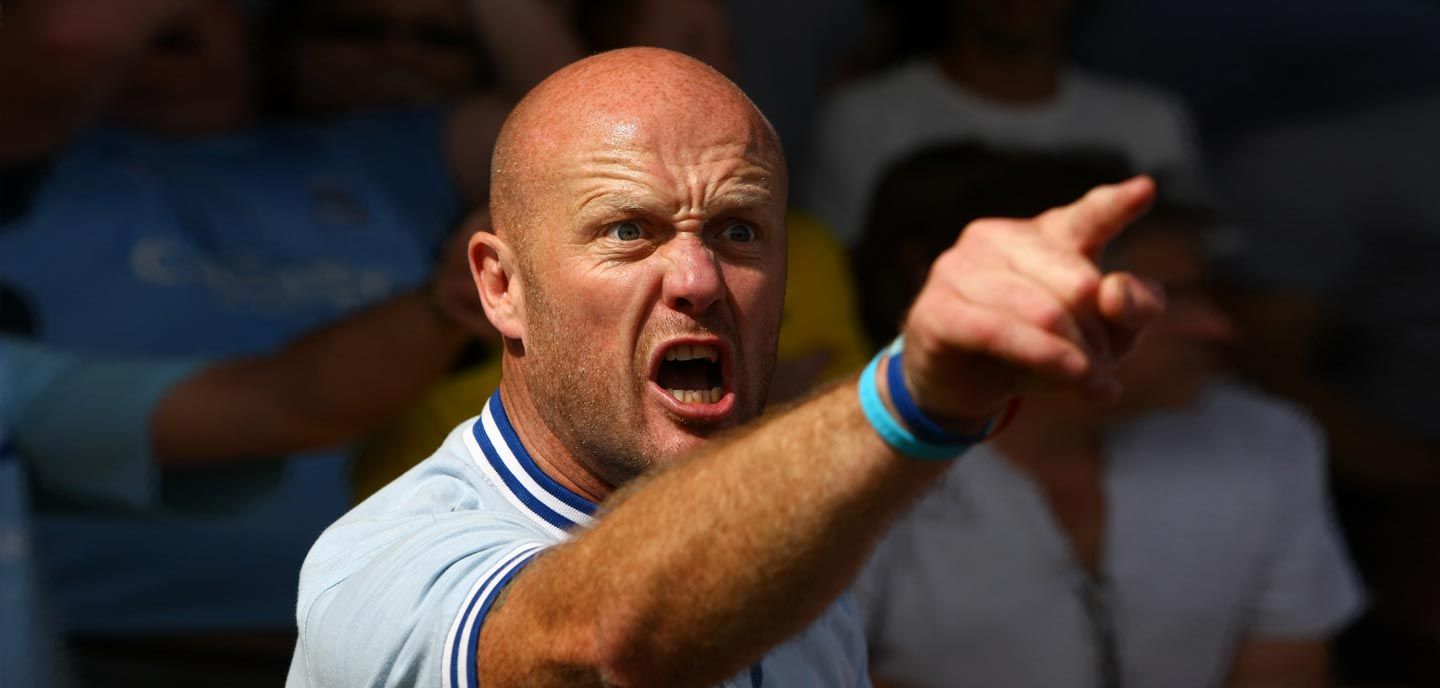I hate that guy.”
I cannot tell you how many times in my growing up years—ok, fine, and my 20s—I said this phrase about Brett Favre. He was the bane of my youthful fandom. I grew up just a few blocks from the Metrodome in Minneapolis and direct center of the purple haze of Vikings fandom.
And Favre was the nemesis.
He ruined so many Sundays. And then he had the audacity to sign with my favorite team for the ill-fated 2012 season which was even worse.
Get our "Top Articles" sent to your inbox weekly.
Favre’s well-deserved (I reluctantly admit) induction into the NFL Hall of Fame reminded me of all this and brought back a million memories. And inside me welled up that old feeling—“I hate that guy.”
But only in that sports-fan way and with a healthy dose of respect mixed with nostalgia.
Several years ago I moved from Illinois to Tennessee where the sky glows orange and the fans chant “SEC, SEC, SEC!” Nowhere in the United States are fans so irrationally rabid as in SEC football country. It divides families, if only for particular weekends.
Fans fight and jeer. The wrong colored shirt will get a person mocked by passers by. These fan bases and teams really hate each other.
At its lightest, hatred in sports is an expression of exasperation or annoyance. At its ugliest it can turn violent as fans attack one another or lead to embittered feuds. But what is hate in the realm of sports?
What do we mean when we say it? And what does it say about us as fans or athletes?
What is this “hatred”?
Usually the word “hate” means that one person wishes ill on another – injury, misfortune, or even death. Hate is antithetical to love, and love is the golden rule. Hate has no place in the heart of a Christian toward other people.
So what does it mean when fans or players or coaches “hate” other fans, players, or coaches?
In sports it often means exaggeration, the misuse of a strong word to mean something weak. When I said I hated Brett Favre I didn’t want him dead or injured. I just couldn’t stand how he torched my favorite team or the aplomb with which he did so.
It was like saying “I hate olives” or “I hate cats.” Well, that’s not fair—I do have ill will toward cats.
In a world where every restaurant is the best or worst and every road trip is “epic” it make sense that feelings of frustration and a feeling of competitive incompetence and incapacity would lead someone to use the word “hate.” We’ve deprived words of their meanings so regularly that we barely even notice.
Except when “hate” actually means hate.
Sometimes fans do wish ill on a player or another fan. Sometimes they do attack in a parking lot after a game or on twitter with vile slurs. Hate sometimes does mean that one person wants to see another injured or humiliated.
It does mean that one person takes great pleasure at another’s misfortune.
Maybe a more accurate word than sometimes is “often.” It happens regularly. We turn on each other often as fans and competitors. We hope the worst for others and are vile in our words and wishes. Sometimes hate is hate, full and unfettered.
Why do we hate?
What do we get from hating, what is the benefit? Most hatred stems from fear. It is an extreme, vitriolic, visceral reaction to the fear that something will happen that we don’t like. So the real question is what is it about sports that causes such fear to lead to hatred?
The answer is identity and all the threats to it that come through sports. When we decide to find our identity in the performance of a team, a player, or our own performance we run a great risk.
Any loss, embarrassment, or being shown up is not merely frustrating but a threat to us—and threats must be fought off. If they happen consistently we become insecure and rattled and that leads to patterns of anger and spite.
Too often we confuse winning with being superior. Yes, winning means that we have a superior score, but says nothing about our identity—not really.
But we often choose to believe it does.
The inverse is that losing means we are inferior, and nothing is worse than that. So losses of any kind are terrifying and humiliating. So whether we win or lose it is easy to turn toward hatred if our identity is in sports.
If we win we hate those we perceive to be inferior and any threat they may pose to our status. If we lose we hate those who defeated us and anyone else who reminds us of our humiliation.
Putting hate away
Competition is a pursuit of excellence. Yes, they keep score. Yes, there is a win column and a loss column. But ultimately it is about pursuing your very best.
As a fan it is, or should be, about appreciating this pursuit. Wins do matter and so do losses, but neither determine the value of the competitor or any fan wearing their colors.
Losses sting. Wins exhilarate. Neither define.
When we lose this perspective we lose all the good that sport has to offer and we devolve into haters.
If we make idols out of athletes or victories or teams or coaches or our own pursuit of success in sports we will become hateful when our idols are threatened. And they will be because everyone has a bad game—everyone loses.
What then? Will we lose the joy sports bring because we decided wrongly what that joy should be? Will we be embittered because we hung our hopes on a hook that doesn’t exist?
It is one thing, likely a foolish one, to say we “hate” such-and-such a player. It is another thing entirely to feel real loathing and want to act on it. Those feelings are indicators that our competitive and spiritual compasses both are out of whack.
We have lost sight of who we are as God made us to be and what sports are as God made them to be. And we have lost sight of what God made the object of our hate to be as well.
Sport should be a magnificent expression of the image of God, but when we hate we steal that from others and allow ourselves to be blind to it.














